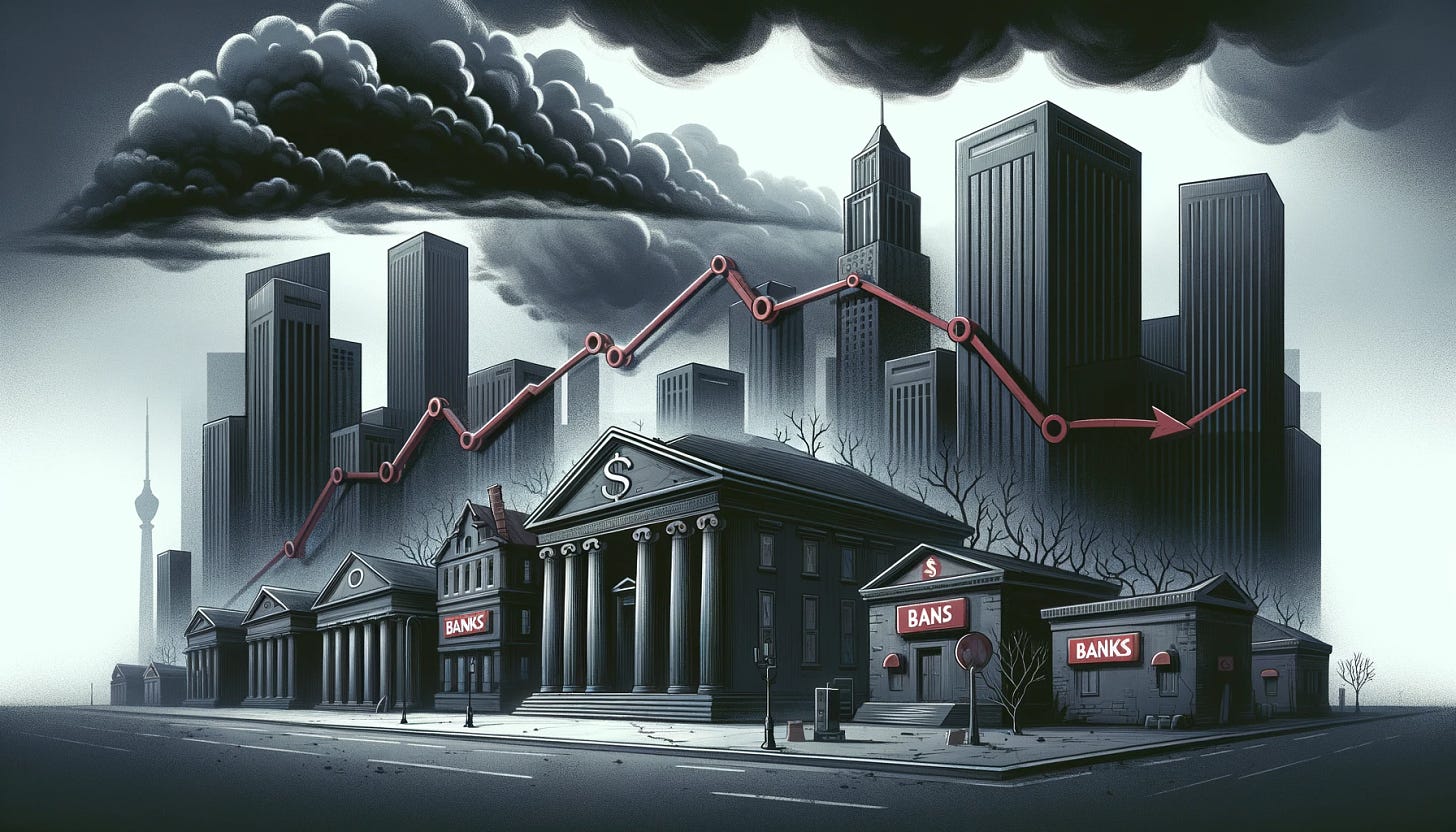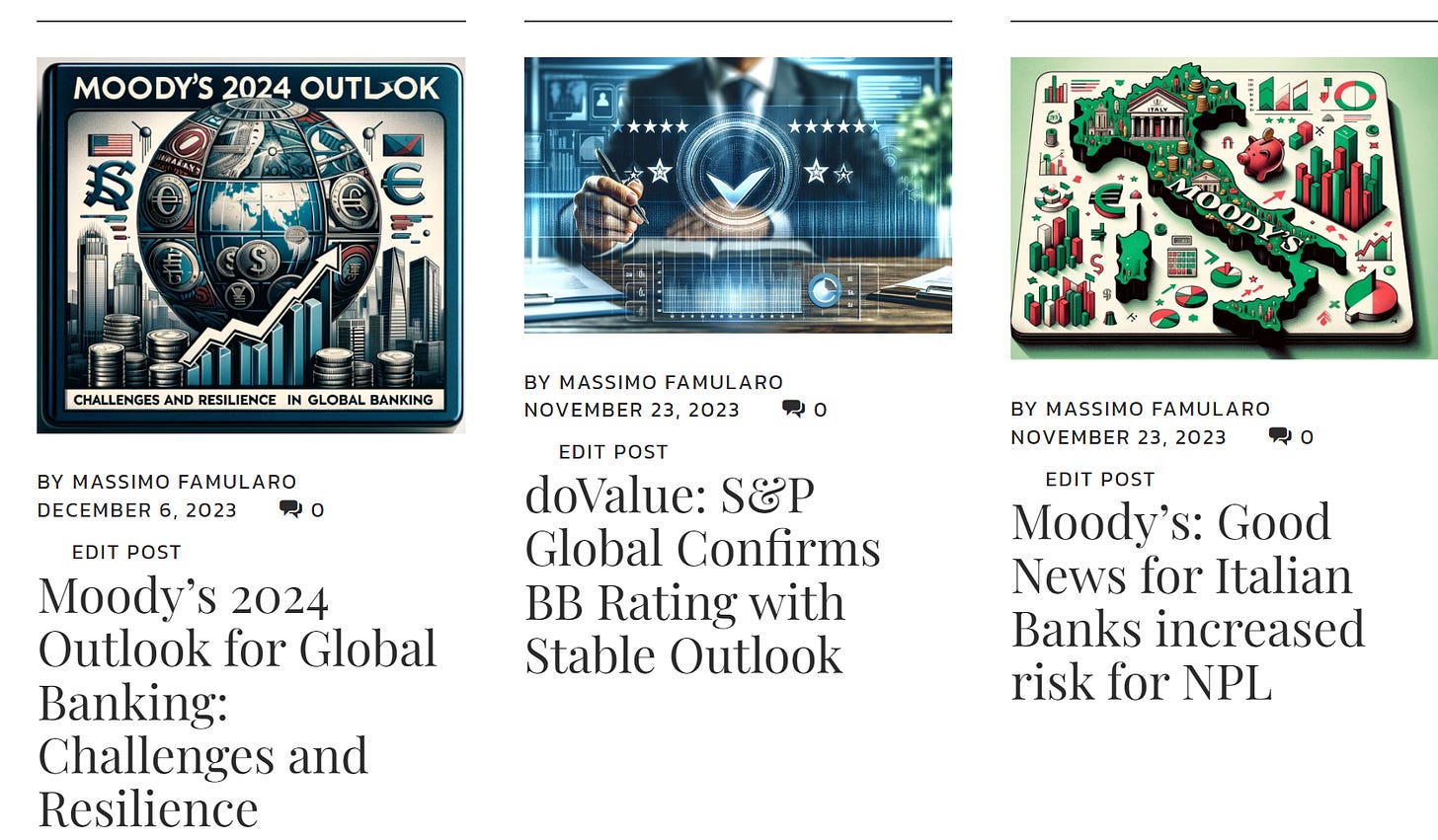Moody's 2024 outlook for global banks is negative, influenced by tighter monetary policies and lower GDP growth. Key challenges include deteriorating loan quality, rising asset risks, and reduced profitability due to higher funding costs and slower loan growth. However, bank capitalization is expected to stay stable, supported by organic growth and capital buildups among major U.S. banks.
Main Driverse of Negative Outlook include:
Weakening GDP growth amid tight monetary policies.
China's economic slowdown affecting private spending, exports, and the property market, which pressures growth in other markets.
Challenges in funding and liquidity due to the monetary policy stance.
Profitability is strained by low loan growth, higher borrowing, and regulatory costs.
Asset risk is increasing due to the impact of monetary policy.
Capital levels remain broadly stable despite these issues.
Moody's anticipates a challenging year for loan quality in 2024, as global banks face squeezed liquidity and tighter repayment capacities. According to their view, loan performance is set to deteriorate due to higher debt-servicing costs and increased refinancing risks, which will slow business and consumer activities, diminishing liquidity and incomes. Inflation and its subsequent impact on household disposable income, along with higher unemployment and lower consumer confidence, are expected to amplify the number of problem loans, particularly in the U.S. within commercial, industrial, and consumer credit sectors, as well as in global real estate.
Latin America may see a gradual improvement in asset risks, following the implementation of tighter origination policies. While the increase in problem loans is projected to be moderate overall, sharper rises may occur in regions with spiking unemployment, waning consumer confidence, and significant household debt—specifically highlighted are the UK, Canada, China, and certain advanced economies. However, Mood's foresees a containment of problem loans in China, thanks to proactive bank risk management strategies.
Mood's analysis suggests a modest rise in corporate defaults, peaking in Q1 and normalizing by end-2024. While their baseline scenario doesn't foresee a significant increase in default rates within a year, economic and financial uncertainties could elevate these rates beyond predictions. In such a scenario, a moderate increase in defaults is more probable. Banks have built loan-loss reserves since the COVID pandemic, providing a buffer against new problem loans.
Large US banks have adequate reserve coverage, although regional banks are less conservative. Western European banks have the lowest reserves, but the European Banking Authority's stress test demonstrated their resilience, with most large EU banks showing strong performance despite potential economic adversities from 2023-2025. Credit risk remains the primary concern for banks that may struggle to meet Common Equity Tier 1 requirements.
Moody's analysis indicates growing risks in the US and European commercial real estate (CRE) sectors, with notable stress in parts of the Asia-Pacific property market. The CRE loan exposures are increasingly strained due to rising interest rates, shifts in demand caused by the pandemic, and tighter lending standards leading to decreased property valuations. These factors have elevated refinancing risks for CRE sponsors, marked by higher loan-to-value ratios and reduced debt service coverage. Historically, high concentrations of CRE loans have caused credit strains and failures, particularly in US small and mid-size regional banks. These smaller banks not only have a higher proportion of their Tangible Common Equity in CRE but also engage more in late-cycle CRE lending compared to larger banks.
Relevant Links:
https://www.moodys.com/research/Banks-Global-2024-Outlook-Negative-as-tight-financial-conditions-Outlook--PBC_1383771?cid=web-ntrnlbnnr-16578#Summary
This newsletter is free please consider supporting it with a small donation
Check my personal blog mostly in Italian
See my full professional profile (available for consulting projects)
My Podcast on Financial News and Education
My new Podcast on Italian Politics








